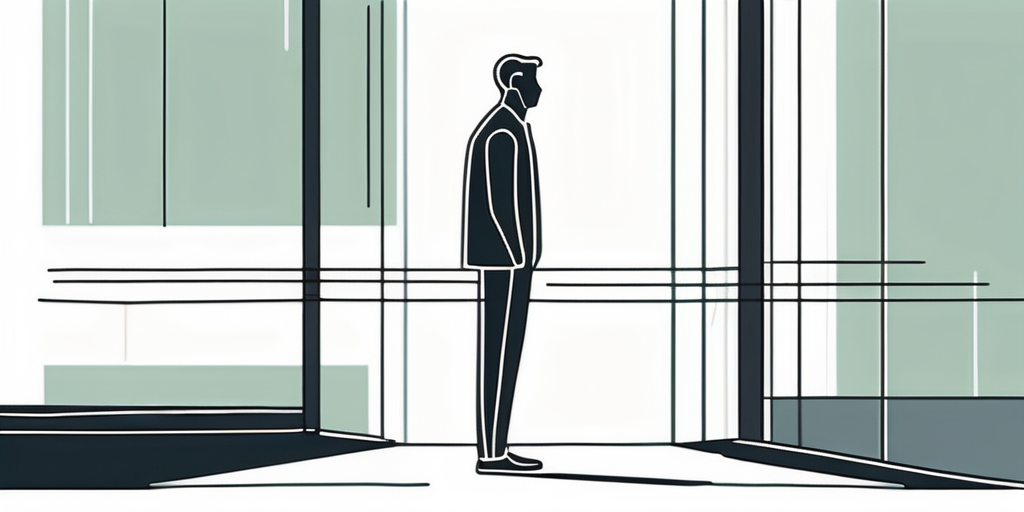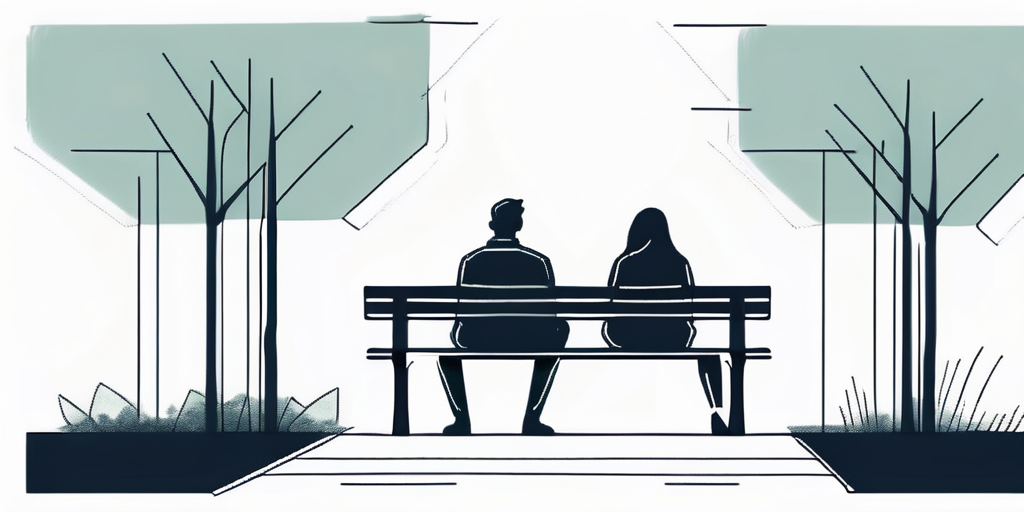Discover the reasons behind men’s tendency to go distant and pull away in relationships.
Emotional distance is a concept that is commonly observed in relationships, particularly when it comes to men. Understanding why men go distant and pull away is crucial for maintaining healthy and fulfilling partnerships. In this article, we will explore the various aspects of emotional distance, the reasons behind men pulling away, the role of communication in relationships, the effects of emotional distance, and strategies to deal with it effectively.
Understanding the Concept of Emotional Distance
Emotional distance can be defined as a state in which one or both partners feel disconnected or detached from each other on an emotional level. It is important to note that emotional distance can occur in any relationship, regardless of gender. However, men often exhibit signs of emotional distance, which can be detrimental to the overall relationship dynamic.
Emotional distance is a complex phenomenon that can have a significant impact on the quality of a relationship. It goes beyond just physical proximity and delves into the realm of emotional connection and intimacy. When emotional distance creeps into a relationship, it can create feelings of loneliness, insecurity, and dissatisfaction for both partners.
Defining Emotional Distance
Emotional distance is characterized by a lack of emotional intimacy and connection between partners. It can manifest in various ways, such as decreased communication, decreased affection, or a general sense of detachment. This can leave the other partner feeling unwanted, unloved, or ignored.
Furthermore, emotional distance can also lead to a breakdown in trust and understanding between partners. When one or both individuals in a relationship start to feel emotionally distant, it can create a barrier that hinders effective communication and problem-solving. This can result in unresolved conflicts and a sense of growing apart.
The Psychological Aspect of Emotional Distance
Emotional distance can stem from various psychological factors. Men may feel the need to withdraw and create distance due to fear, overwhelm, stress, or a desire for personal space. Understanding these underlying factors can provide insight into why men sometimes exhibit behaviors that lead to emotional distance.
It is essential for both partners to recognize the signs of emotional distance and work towards bridging the gap through open and honest communication, empathy, and a willingness to address underlying issues. By addressing emotional distance proactively, couples can strengthen their bond and cultivate a deeper sense of connection and intimacy.
The Common Reasons Men Pull Away
There are several common reasons why men may feel the need to pull away in relationships. It is important to recognize and address these reasons in order to alleviate emotional distance and strengthen the relationship.
What Men Secretly Want
Uncover the Mysterious Desires of Men and Gain Insight into What They Secretly Crave with an Eye-Opening Quiz.

Understanding the complexities of human emotions and behaviors can shed light on the common reasons why men may choose to create some distance in relationships. By exploring these reasons further, we can gain a deeper insight into the intricacies of male psychology and relationship dynamics.
Fear of Commitment
One common reason men pull away is their fear of commitment. This fear can be rooted in past experiences, fear of losing independence, or a general uncertainty about the future. Men may distance themselves as a protective mechanism to avoid potential emotional pain or responsibility associated with commitment.
Delving into the depths of this fear of commitment can unveil a myriad of underlying issues that men may grapple with internally. It is crucial to create a safe and supportive environment where men feel comfortable expressing their fears and concerns about commitment without judgment.
Overwhelm and Stress
Another factor that can contribute to emotional distance is overwhelm and stress. Men, like anyone else, may experience challenging circumstances in different areas of their lives, such as work, personal issues, or financial concerns. These stressors can cause them to withdraw emotionally as they try to navigate and cope with the challenges they are facing.
Exploring the impact of overwhelm and stress on men’s emotional well-being can offer valuable insights into how external factors can influence their behavior in relationships. By acknowledging and addressing these stressors, men can work towards creating a healthier balance between their personal challenges and their relationships.
Need for Personal Space
Men, like everyone else, might also feel the need for personal space in a relationship. This should not be confused with emotional distance, but rather as a healthy way to recharge and reconnect with themselves. Men may pull away temporarily to regain a sense of individuality and to reflect on their own thoughts and emotions.
Exploring the concept of personal space within the context of relationships can highlight the importance of self-care and introspection for men. By honoring their need for personal space, men can cultivate a deeper sense of self-awareness and emotional well-being, ultimately enhancing the quality of their relationships.
The Role of Communication in Relationships
Effective communication plays a crucial role in maintaining a healthy relationship and preventing emotional distance. Open dialogue and understanding each other’s needs and concerns are key components of fostering emotional intimacy.

Communication is not just about words; it also involves nonverbal cues such as body language, tone of voice, and facial expressions. These nonverbal signals can often convey more than words alone, adding depth and nuance to the interaction. Being attuned to these nonverbal cues can enhance understanding and strengthen the emotional connection between partners.
Importance of Open Dialogue
Regular and open communication is essential for addressing emotional distance. Both partners should feel comfortable expressing their emotions, desires, and concerns. Encouraging open dialogue allows for a better understanding of each other’s perspectives and promotes a deeper connection.
Moreover, creating a safe space for communication is vital in a relationship. This safe space includes mutual respect, trust, and the absence of judgment. When individuals feel secure in expressing themselves without fear of criticism, they are more likely to be open and honest, leading to a stronger bond.
Miscommunication and Misunderstandings
Miscommunication and misunderstandings can contribute to emotional distance. It is important to actively listen, clarify any misinterpreted messages, and practice empathy. By addressing and resolving misunderstandings, partners can bridge the communication gap and reduce emotional distance.
Additionally, acknowledging and validating each other’s feelings is essential in effective communication. When one partner feels heard and understood, it fosters a sense of validation and emotional connection. This validation reinforces the idea that both individuals’ emotions are important and worthy of attention, further strengthening the relationship.
How Emotional Distance Affects Relationships
Emotional distance can have significant effects on relationships, impacting both partners’ emotional well-being, intimacy, and connection.
Love Resources
Unlock Passion, Connection, and Lasting Happiness with Expert Relationship Resources.
Understanding the root causes of emotional distance is essential in addressing and overcoming this challenge. It can stem from past traumas, communication issues, differing attachment styles, or external stressors. By delving into the underlying reasons for emotional distance, partners can work together to cultivate a deeper understanding and empathy towards each other’s feelings and needs.
Impact on Intimacy and Connection
Emotional distance can lead to a lack of intimacy and connection. It may result in reduced physical affection, decreased shared experiences, and an overall feeling of detachment. Intimacy requires emotional vulnerability, trust, and open communication. When emotional distance is present, these crucial elements can become compromised.
Building emotional intimacy requires intentional effort and commitment from both partners. Engaging in activities that promote emotional closeness, such as meaningful conversations, shared goals, and acts of kindness, can help bridge the gap created by emotional distance. By prioritizing emotional connection, partners can strengthen their bond and foster a deeper sense of closeness.
Long-term Effects of Emotional Distance
If emotional distance persists, it can have long-term effects on the relationship. Partners may begin to feel emotionally neglected or unfulfilled, leading to resentment, dissatisfaction, and potential relationship breakdown. It is crucial to address emotional distance early on to prevent long-lasting damage.
Seeking professional help, such as couples therapy or individual counseling, can be beneficial in navigating the complexities of emotional distance. A trained therapist can provide guidance, facilitate productive conversations, and offer tools to improve emotional communication and connection. Addressing emotional distance proactively can not only strengthen the relationship but also foster personal growth and self-awareness for both partners.
Strategies to Deal with Emotional Distance
Dealing with emotional distance requires proactive measures to rebuild connection and emotional intimacy.

Building Emotional Intelligence
Developing emotional intelligence is an essential strategy for managing emotional distance effectively. This involves recognizing and understanding one’s own emotions and the emotions of others. By cultivating emotional intelligence, individuals can navigate emotions more effectively and build deeper connections with their partners.
Fostering Trust and Understanding
Building trust and understanding are crucial for counteracting emotional distance. Trust is the foundation of any healthy relationship, and fostering it requires open communication, honesty, and consistent support. Creating a safe and non-judgmental space where both partners feel heard and understood is essential to bridging emotional distance.
Seeking Professional Help
In some cases, seeking professional help may be beneficial in addressing emotional distance. Couples therapy or individual counseling can provide the necessary guidance and tools to navigate emotional distance and strengthen the relationship. A trained professional can offer impartial support and facilitate effective communication strategies.
Overall, understanding the concept of emotional distance, recognizing the common reasons men pull away, emphasizing the role of communication, acknowledging the effects of emotional distance, and implementing strategies to deal with it are essential for fostering healthy and fulfilling relationships. By actively addressing emotional distance, individuals can create stronger emotional bonds and prevent potential relationship challenges.



